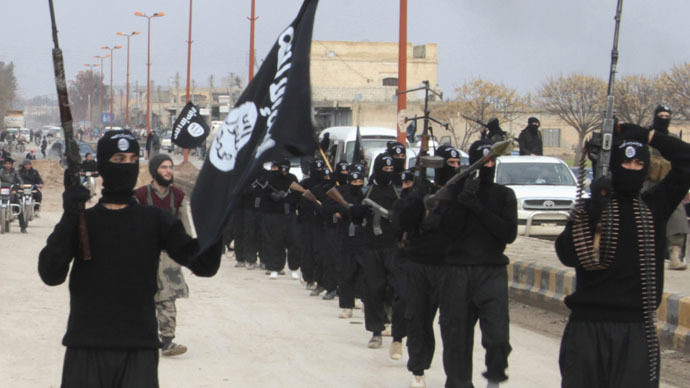As the SAS is reportedly given free rein in Syria, the former head of Scotland Yard’s counter-terrorism unit says Britain should put home grown extremists on charter flights to Islamic State territory rather than let them ‘fester’ at home.
Robert Quick, who held the rank of assistant commissioner at Scotland Yard, said those who wished to go and wage jihad should be made to surrender their passports and never return.
READ MORE: ‘Illogical’ not to bomb Islamic State in Syria – Def. Secretary
“You have to think how do you confront it, if you have hundreds or thousands who want to go there and live that life?” Quick, who was head of counter-terrorism 2008-2009, told the Guardian.
“We should try and convince them not to go. If they want to go, you have to ask the question, are we better off, if they surrender their passports and go? It’s better than them festering away here.
“Should we say we’ll lay on charter flights to Syria; turn up with your passport and if you are over 18, if this is the life you want, then go?” he added.
His comments come as Andrew Parker, the director general of domestic spy agency MI5, warned of the “societal and security challenge” which extremists pose to the UK.
Parker told the Times the agency “simply can’t find and stop every terrorist plot.”
He said violent acts like the 7/7 London bombings “are attempted by individuals who have grown up here but decided for whatever twisted reasons to identify their own country as the enemy.”
As well as the police and intelligence response, the military may also be reorienting itself to fight Islamic State (IS, formerly ISIS/ISIL) in Syria.
READ MORE: Al-Qaeda cleric linked to Tunisian terror attack living in UK on benefits – report
Amid discussion of extending UK bombing into Syria in the wake of the Tunisian attacks which claimed 30 British lives, UK Special Forces are said to have been given free rein to operate in IS-held territory.
Units like the army’s SAS and the Royal Marines’ Special Boat Service (SBS) may be used to call in airstrikes on command and control infrastructure in Syria and carry out battle damage assessments afterwards.
The Sunday Times quoted an anonymous intelligence source as saying “the SAS have been pushing to be more proactive for quite a while.
“In the past couple of years they have planned a number of operations in Syria when the chemical weapon threat was high, but the missions were vetoed at the highest level because of the risks involved.
“The Tunisian attack has led to a rethink and has speeded up the inevitable use of SF [Special Forces] against Islamic State.”

